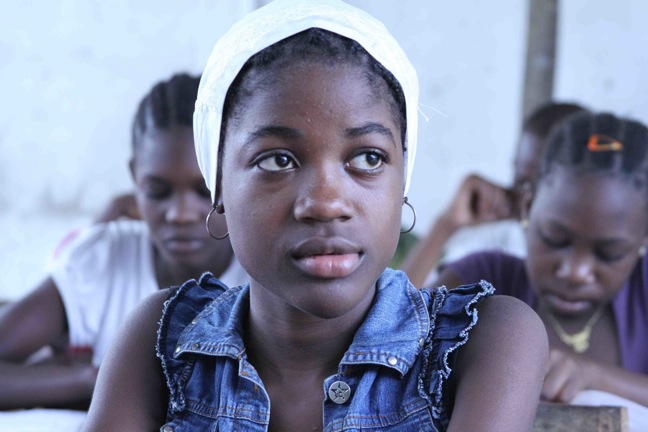
On a normal day as you enter the training centre you find a big group of girls from different background diligently working with their trainer, assisting each other in learning, carrying on with their tasks joyfully. Another small group of girls are preparing the break snacks and tea for their classmates while quietly whispering to each other. On the other side of the yard in a dark classroom, a group of mixed youth pay attention to their teacher and once in a while the sound of their laughter fills up the air. In the adjacent classroom, the afternoon session early birds work together learning English with limited supervision. Inside, the coordinator and the director attend to many overwhelming issues including sick participants who should be escorted home, water and power outages, evacuation notices, hungry girls and boys, parents who beg for their children to be enrolled, rain pouring into the classroom due to porous thatch roof causing havoc and therefore stranded participants, lack of human resources to help, no telephone or Internet, hot and humid weather and no fan or air-conditioning to make it easier, limited space to deal with all, and finally but not least people who drop in to request new projects to address their needs.
One might ask what really makes Chipua a special place? Despite the rigors of working in the developing world, our staff remain committed to our programs and, more importantly, to our participants. Encouragement is the corner stone of any training at Chipua. Staff members work with participants to develop an upright character that encourages the participant to become an active member of society who behaves in such a way that others want to work with them and spend time with them. After attending Chipua for only a few months, all the participants interact with each other differently and feel they are part of one human family.
Chipua is currently operating five projects under the Girls in Crisis and Second Chance programs:
- Supported by the Australian Agency for International Development (AusAID) under its Africa Regional Small Activities Scheme (ARSAS), the first project under the Girls in Crisis program is training 50 girls at the Chipua Training Centre in the Kinondoni neighborhood of Dar es Salaam. The project began in April 2010 and it will conclude in November 2010.
- The second Girls in Crisis project is supported by the Diplomatic Spouses Group of Dar es Salaam. The project targets vulnerable girls in the Yombobuza slum on the outskirts of Dar es Salaam. 20 participants have been selected, and Chipua is in the process of constructing a banda (temporary shelter) and preparing the training area.
- The Second Chance program is currently supporting three projects: one morning session and two afternoon sessions at the Chipua Training Centre in the Kinondoni neighborhood of Dar es Salaam. The morning session was started in January 2010 and it will be completed by October 2010. The two afternoon sessions were started in January 2010 and they will be completed by October 2011.

 RSS Feed
RSS Feed